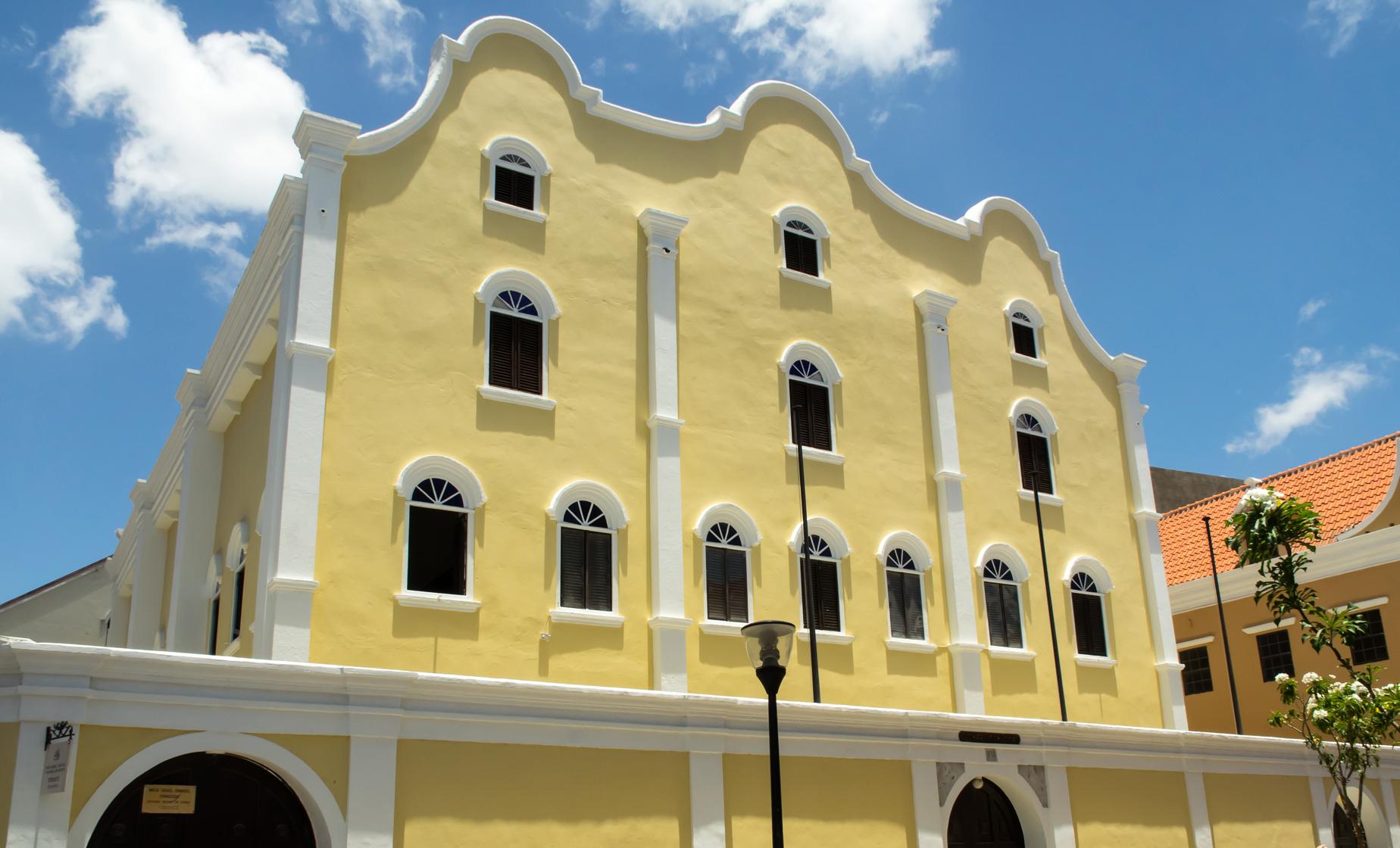Tour Details
Jewish Heritage of Curacao
Curacao holds the dubious distinction of being the major slave port in the Americas in the 17th and 18th centuries. It was a hub from which more than a half million enslaved Africans were sold on the docks and shipped to plantations in North and South America. Curacao also played a pivotal role in another major movement of people from one part of the world to another, one that offered opportunity rather than oppression.
In 1651, Curacao's Jewish Congregation was founded by twelve Sephardic families who came to the island seeking the freedom to practice their faith, as well as pursue economic possibilities. The Sephardic Jews fled Portugal with the entrance of the Inquisition, and by coincidence, the Low Countries - now The Netherlands and Belgium - had around that same time won their 80-Years War against Spain and Catholicism, by defeating the Spanish Armada. Being liberated from the Catholic kings subsequently allowed them to open their borders to non-Catholics. They assured the Jews that they would respect their desire for freedom of worship, which had been forbidden by the Catholic kings. The Jews that settled in the Low Countries, primarily in Amsterdam, were then sought out when the Dutch West Indies Company recruited colonists to settle on Curacao, many of the Sephardim followed the Dutch flag as this guaranteed them religious freedom.
Today in Curacao there are two Jewish congregations: the Sephardim, who practice reconstruction Judaism, and the Ashkenazim, who practice modern orthodox or traditional Judaism.
Your first stop is the Beth Haim Jewish cemetery, consecrated in 1659, it is the oldest Caucasian cemetery on the island and in the Western Hemisphere. The site is also a Curacao National Monument.
Then you will visit another historic site also created as a peaceful sanctuary, the Rooi Catootje plantation house. It dates to about 1820 and was originally known as "Rust en Vrede," which translates as "Rest and Peace." The house has been the property of the Maduro family since 1853, when S.E.L. Maduro brought it as a gift to his wife Rebecca Curiel from her parent's estate. The house has now been preserved as a museum.
Continue to the 17th-century plantation house Chobolobo, owned by a Jewish family, where Curacao liquor is produced. Tour the house and learn more about the family name and history. Before leaving take the opportunity to enjoy samples of this famous local product.
The final part of your excursion will end with a drive through the old Jewish neighborhood of Scharloo. Make a stop at a synagogue for an up-close look at religious life in Curacao. The Jewish faith has been practiced here without interruption since 1732 and one congregation itself is even older, having been established in 1651. The very fear of persecution is what drove many of Curacao's earliest Jewish residents to relocate to the island in the first place. They were rightfully more than a little guarded about their beliefs, even upon founding their congregation and building their synagogues nearly a century later.
Duration: 3 hours
Buy Online
Benefits of Independent Tours
- Lower Prices than the Cruise Lines
- Smaller Tours, Higher Quality
- Money Back Guarantee
- Guaranteed Return to Ship
- 24 Hour Hotline
How to Book Shore Excursions
You can book these tours Online or Call. To buy online, visit our iCruise Shore Excursions website.
or Call 1-800-545-4988
Speak to a Shore Excursions expert for more information about this tour and other tours.
Reference: Holland America Line, Zuiderdam, Departing Tue, Mar 31, 2026
Buy Online
More about this tour
Shore Excursion Size: Standard
Shore Excursion Type: Scenic, Cultural, Historical
Shore Excursion Duration: 3
Shore Excursion Departs From: Cruise Ship Pier
Activity Level: Easy
Food/Beverage Provided: Water Included
Recommended Dress: We recommend wearing comfortable, seasonal clothing and walking shoes. A hat, sunglasses, and sunscreen is also recommended.
Restrictions: Guests must be able to step in and out of the vehicle.



